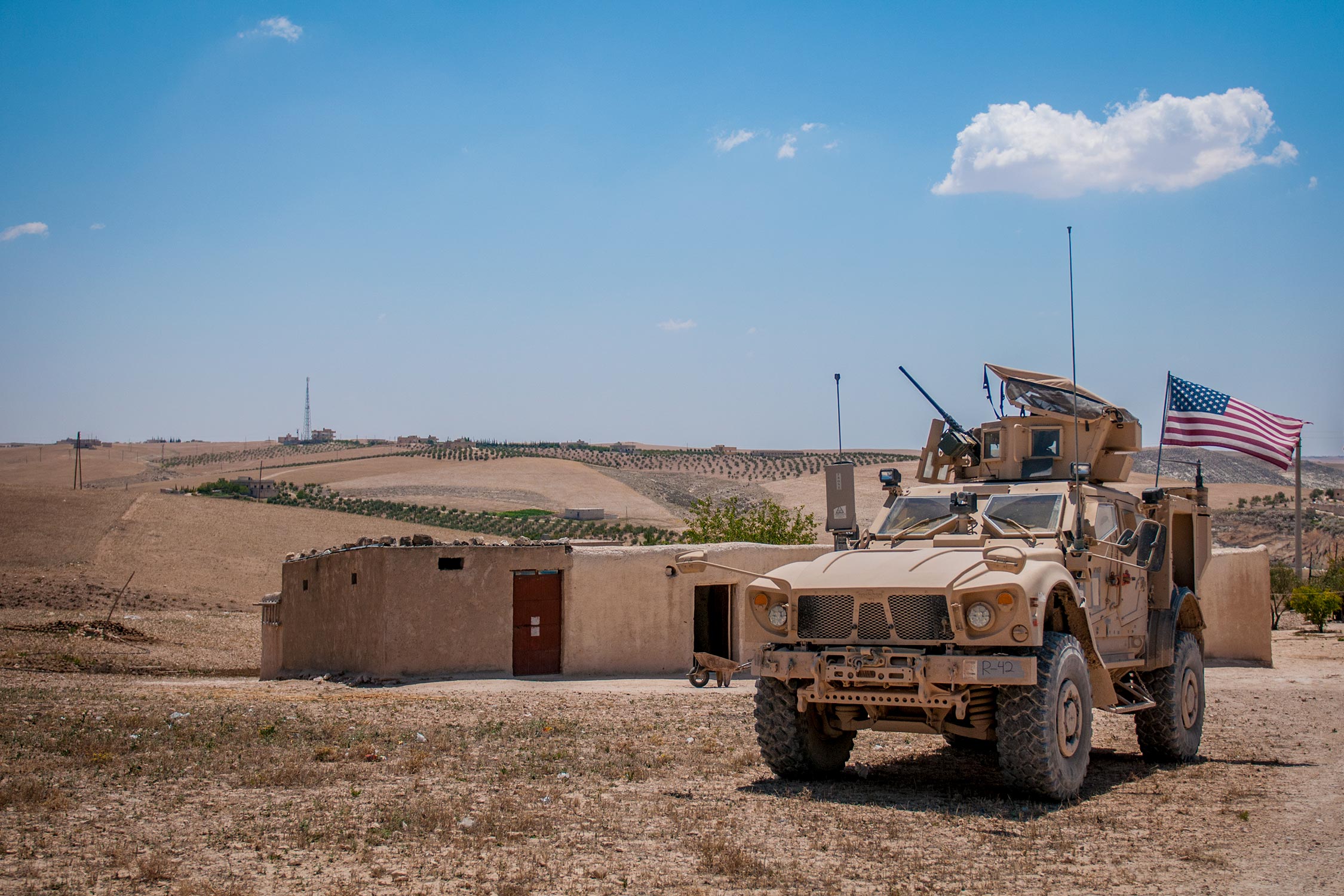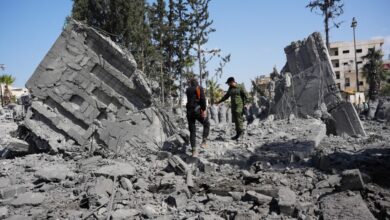US begins Syria withdrawal
The U.S.-led military coalition in Syria has begun pulling out of the country, a spokesperson said on Friday, January 11.
“CJTF-OIR has begun the process of our deliberate withdrawal from Syria,” Coalition spokesperson Colonel Sean Ryan said, referring to the U.S.-led military mission against Islamic State.
“Out of concern for operational security, we will not discuss specific timelines, locations or troop movements,” he added.
It was unclear whether the Coalition was withdrawing personnel, equipment, or both. The Coalition did not immediately reply to a request for information.
The timetable for the drawdown has been uncertain since President Donald Trump’s shock announcement last month that U.S. troops would be leaving Syria.
On Thursday, CNN reported U.S. defense official as saying that some “cargo” had been moved, signaling the beginning of the withdrawal.
The USS Kearsarge is on its way to the region to back up troops as they withdrawal, The Wall Street Journal said Thursday. The Wasp-class amphibious assault ship can transport hundreds of personnel, vehicles and other equipment. According to the WSJ report, the plan is to stage personnel and equipment necessary for a withdrawal – rather than move troops out of the country – in case the plans change.
Immediately following Trump’s December 17 announcement, U.S. officials scrambled to alert America’s allies in the Coalition and on the ground, as well as mitigate the damage and buy time.
According to details of conversations between senior officials obtained by The Defense Post, the White House decision to go ahead with the announcement was made without consulting senior State Department personnel with responsibility in the region, and apparently without the knowledge of CJTF-OIR commander Lieutenant General Paul LaCamera.
Officials at that time were adamant about not committing to a date for withdrawal, and the date originally floated has passed.
Earlier this week, U.S. National Security Advisor John Bolton laid out conditions for the pullout, including the defeat of ISIS in Syria and guarantees for the safety of Washington’s allies in the campaign, the Syrian Democratic Forces and its component People’s Protection Units (YPG), who have been threatened with an imminent offensive by Turkey.
U.S. officials have also expressed concern that any Turkey-led incursion would put Coalition forces at serious risk.
Bolton’s comments were widely seen as backtracking on Trump’s announcement, including by Turkey which described them as “unacceptable.”
Trump’s withdrawal decision was made during a December 14 phone call with Turkey’s President Recep Tayyip Erdogan, and the two leaders reportedly agreed that Turkish forces could take the lead in the fight against Islamic State in Syria.
Bolton previously said the U.S. wanted guarantees that Turkey would not endanger American partner forces.
Officials from the SDF and Democratic Union Party (PYD), the political arm of the YPG, have called on the U.S. to implement a no-fly zone over northern Syria to protect against Turkish attacks in the past, and the Bush administration’s 1991 decision to establish a no-fly zone over northern Iraq was mentioned during the conversations between U.S. officials in December.
Russian foreign ministry spokesperson Maria Zakharova said Friday that the U.S. pullout had made it important for the Kurds, who make up the majority of the YPG, to begin dialogue with Damascus.
This story was updated on January 11 with additional details and background.
With reporting from AFP











